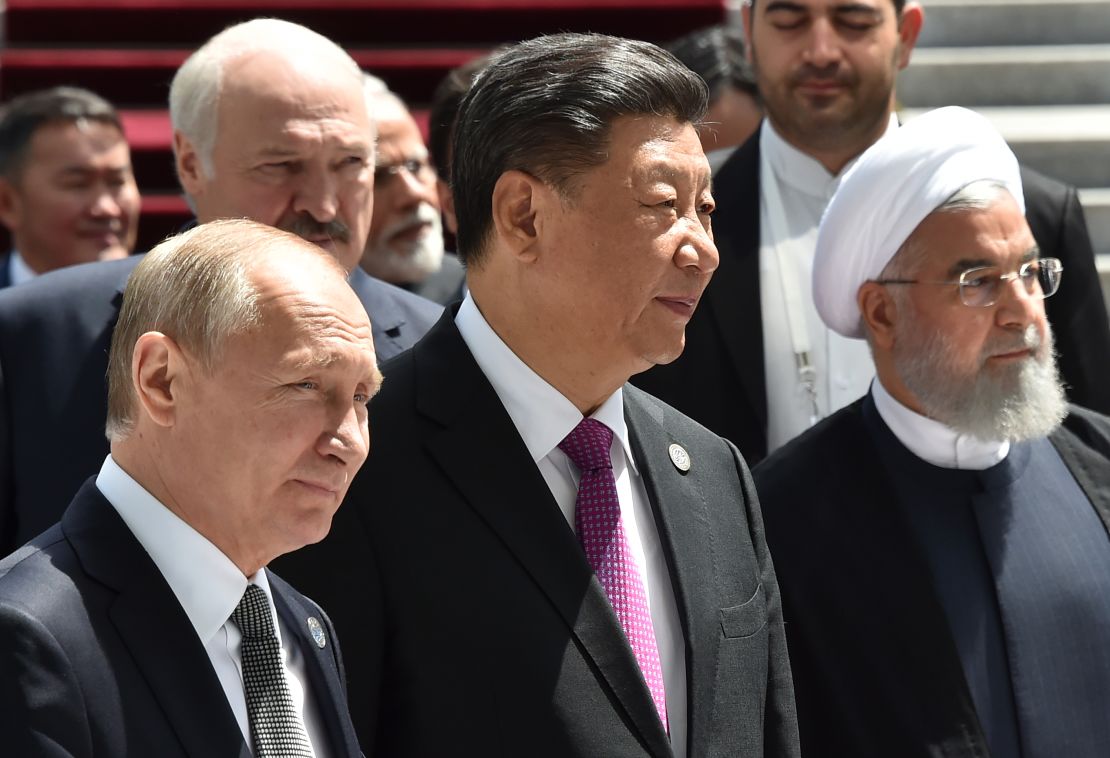
The Assad regime, long reliant on the backing of powerful allies like Iran, Russia, and China, appears to be facing a decline in external support as geopolitical shifts and internal crises strain these relationships. Despite recent diplomatic overtures, the Assad regime’s prospects seem increasingly precarious, with economic and political challenges mounting.
During a visit to Beijing in September 2023, Bashar al-Assad lauded the potential of a strategic partnership with China, describing his visit as “fruitful” and “successful by all standards.” Chinese President Xi Jinping also hailed the meeting as a milestone, announcing the establishment of a strategic partnership between China and Syria. However, the tangible outcomes of this partnership have been underwhelming.
A year after the visit, only one new Chinese company has been registered in Syria, according to Syrian state media. Economic expert Yassin al-Jabi noted that Assad’s attempts to secure substantial financial support from China have failed both economically and diplomatically. “Assad’s move did not break his international isolation,” al-Jabi said, emphasizing that Beijing’s involvement in Syria seems more symbolic than substantive.
China’s reluctance to invest heavily in Syria is partly due to the risks posed by US sanctions under the Caesar Act, as well as Syria’s unstable security situation and dilapidated infrastructure. The Syrian economy, already in tatters, offers little incentive for significant Chinese investment. Furthermore, China’s focus has shifted to more stable and lucrative markets, such as those in the Gulf region.
Russia, another key ally of the Assad regime, is similarly preoccupied with its own geopolitical struggles. The ongoing war in Ukraine has drained Russian resources and diverted attention away from Syria. While Russian companies have increased their investments in Syria’s coastal regions, the broader support that Assad has historically relied on from Moscow appears to be waning. According to Iranian newspaper Aftab News, Russia’s geopolitical challenges could diminish its ability to continue its extensive support for Assad.
Iran, which has been a steadfast supporter of the Assad regime throughout the Syrian revolution, is also facing its own set of challenges. The economic strain of its proxy war with Israel, compounded by international sanctions, has raised doubts about Tehran’s capacity to maintain its current level of support for Syria. The Aftab News report highlighted that Iran’s economic troubles might force it to scale back its assistance, despite Syria’s strategic importance to Tehran.
The implications of these shifting alliances are significant. A weakening of the Assad regime could undermine Iran’s influence in the region, particularly in its ongoing conflict with Israel and the West. The potential collapse of Assad’s regime would also remove a critical ally for Iran, leaving the country more vulnerable in its regional power struggles.
Domestically, Syria is grappling with severe economic inflation and widespread poverty. The World Bank reports that 13 years of conflict have left millions of Syrians unable to meet their basic needs, with 27% of the population living in extreme poverty. The devastating February 2023 earthquake further exacerbated the country’s humanitarian crisis.
The erosion of support from key allies, combined with Syria’s dire economic situation, may explain Assad’s increasing exploitation of Syria’s fragile economy, yet also raises the possibility of a significant shift in the country’s political landscape. As Iran, Russia, and China reassess their commitments to Syria, the Assad regime may find itself more isolated and vulnerable than ever before.








